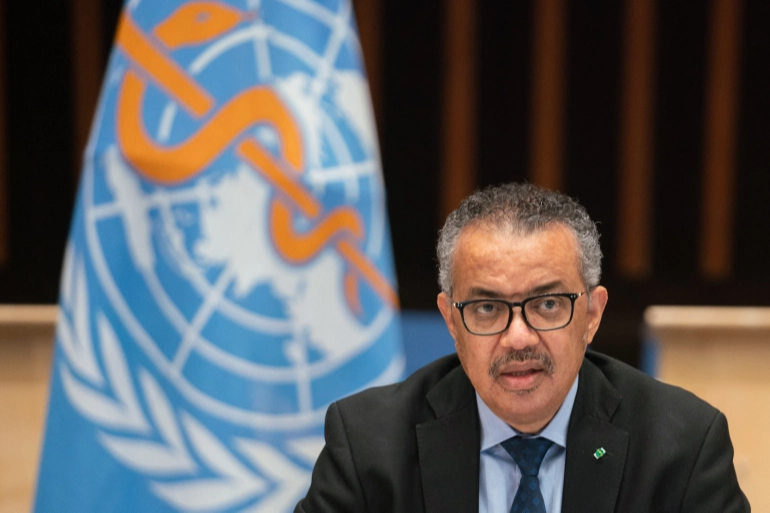
World Health Organization Director-General Tedros Adhanom Ghebreyesus said it is too early for countries to rely solely on vaccines and abandon other measures. (Photo: Fabrice Coffrini/Pool via Reuters)
Geneva, March 2 (RHC)-- The number of new coronavirus infections globally rose last week for the first time in seven weeks, the World Health Organization (WHO) has said.
WHO Director-General Tedros Adhanom Ghebreyesus told a briefing in Geneva the increase in cases was “disappointing but not surprising” -- noting that the upward trend was taking place everywhere in the world apart from Africa and the Western Pacific region. “Some of it appears to be due to relaxing of public health measures, continued circulation of variants and people letting down their guard,” he said.
For her part, Maria Van Kerkhove, the technical lead for COVID-19 at the United Nations’ health agency, described the increase as “a stern warning for all of us”, before adding: “This virus will rebound if we let it – and we cannot let it.”
So far, there have been more than 114 million confirmed coronavirus cases, including some 2.5 million related deaths and 64.5 million recoveries, according to data by Johns Hopkins University.
Meanwhile, Tedros said it was too early for governments to just count on vaccination programmes and abandon other measures to fight the disease. “If countries rely solely on vaccines, they are making a mistake. Basic public health measures remain the foundation of the response,” Tedros said.
However, he said it was encouraging that vaccine doses for medical personnel in poorer countries are finally being given, including in the West African countries of Ghana and Ivory Coast.
The two countries on Monday were the first to begin vaccinating people with doses supplied by COVAX, the international programme to provide vaccines for poor and middle-income countries. The WHO chief also criticised rich countries for hoarding vaccine doses, saying it was in everyone’s interest for vulnerable people to be protected around the world.
“It is regrettable that this comes almost three months after some of the wealthiest countries started their vaccination campaigns,” Tedros said. “Some countries continue to prioritise vaccinating younger healthier adults at lower risk of diseases in their own populations, ahead of health workers and older people elsewhere.”
By the end of May, 237 million doses of COVID-19 vaccines are expected to be ready for distribution in 142 poorer countries.
Mike Ryan, the WHO’s top emergency expert, said the global fight against the coronavirus was in a better state now than it was 10 weeks ago before the roll-outs of vaccines had begun. But it was too early to say the virus was coming under control. “The issue is of us being in control of the virus and the virus being in control of us. And right now the virus is very much in control.”

